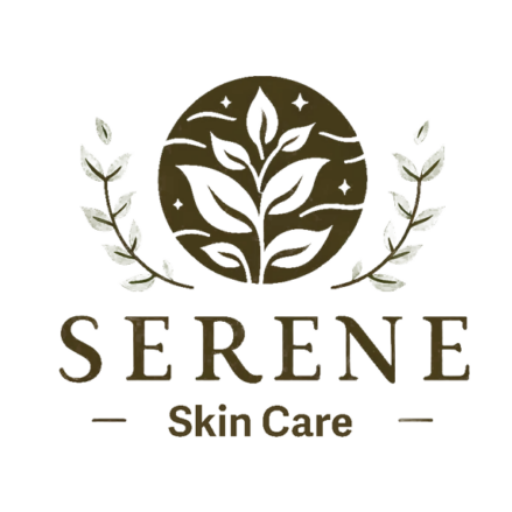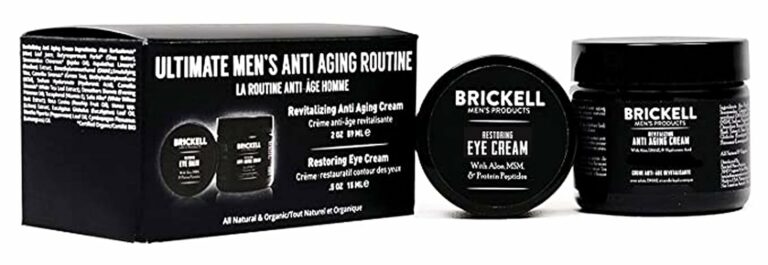In today’s fast-paced world, finding ways to take care of ourselves and the planet has become increasingly important. That’s why sustainable and eco-friendly skincare innovations have taken the beauty industry by storm. From natural ingredients to recyclable packaging, these groundbreaking products are not only good for our skin but also help to reduce our environmental footprint. In this article, we will take a closer look at some of the latest skincare innovations that prioritize sustainability and eco-consciousness. Get ready to discover a whole new world of beauty that’s as kind to the earth as it is to your skin.
Packaging Innovations
Biodegradable and compostable packaging materials
One of the key innovations in sustainable skincare packaging is the use of biodegradable and compostable materials. Instead of relying on traditional plastics that can take hundreds of years to break down, brands are now opting for packaging made from materials like cornstarch, bamboo, and sugarcane. These materials are not only biodegradable but also compostable, meaning they can be broken down into nutrient-rich soil when disposed of properly. This not only reduces the amount of waste going to landfills but also helps to minimize the environmental impact of skincare packaging.
Refillable and reusable packaging
Another important development in sustainable skincare packaging is the adoption of refillable and reusable containers. Rather than purchasing a new product every time it runs out, consumers can now simply refill their existing containers with a fresh batch of product. This not only reduces packaging waste but also saves money in the long run. Additionally, some brands are introducing innovative refill stations or subscription services where customers can return empty containers and receive a refill, further encouraging the use of reusable packaging and reducing the need for single-use alternatives.
Minimal and optimized packaging
In the quest for sustainability, many skincare brands are embracing minimalistic packaging designs. Instead of using excessive layers of packaging or unnecessary inserts, they are opting for streamlined packaging that reduces material usage and waste. Additionally, brands are finding creative ways to optimize packaging by creating multi-purpose containers or using innovative dispensing mechanisms that minimize product waste. By focusing on efficient and minimal packaging, these brands are contributing to a greener and more environmentally friendly skincare industry.
Upcycling and recycling initiatives
To tackle the challenge of waste generated by skincare products, many brands are embracing upcycling and recycling initiatives. Upcycling involves repurposing waste materials or by-products from the manufacturing process to create new packaging components. For example, some brands are using recycled glass or plastic to create their containers, reducing the demand for virgin materials. Recycling initiatives also play a vital role, with many brands actively encouraging customers to recycle their empty product containers through dedicated programs or partnerships with recycling facilities. By closing the loop and giving new life to materials, these initiatives significantly reduce the environmental impact of skincare packaging.
Natural and Organic Ingredients
Plant-based extracts and oils
In recent years, there has been a surge in demand for skincare products formulated with natural and organic ingredients. Brands are responding to this demand by incorporating plant-based extracts and oils into their formulations. These ingredients are sourced from renewable plant sources and offer a range of skincare benefits. For example, ingredients like avocado oil and rosehip extract provide nourishment and hydration to the skin, while chamomile and green tea extract have soothing and anti-inflammatory properties. By harnessing the power of nature, these brands are creating effective and sustainable skincare solutions.
Fair-trade and ethically sourced ingredients
Alongside the use of natural and organic ingredients, ethical sourcing practices are also gaining prominence in the skincare industry. Many brands are prioritizing fair-trade and ethically sourced ingredients, ensuring that farmers and workers involved in the supply chain are paid fair wages and operate under safe and fair working conditions. Additionally, these brands often support small-scale farmers and communities, providing them with opportunities for economic growth and sustainability. By choosing products that prioritize fair-trade and ethical sourcing, consumers can support positive social and environmental impact in the skincare industry.
Avoidance of harmful chemicals and toxins
Sustainable skincare brands are committed to avoiding harmful chemicals and toxins in their formulations. Instead, they prioritize clean and safe ingredients that are gentle on the skin and the environment. This includes avoiding ingredients such as parabens, phthalates, sulfates, and synthetic fragrances, which have been linked to various health and environmental concerns. By opting for products that are free from harmful chemicals and toxins, consumers can ensure that their skincare routine is both safe and eco-friendly.
Certification and transparency
To provide consumers with assurance and transparency, many sustainable skincare brands seek certifications from reputable organizations. These certifications verify that a product meets specific sustainability and ethical standards, such as being cruelty-free, organic, or fair trade. By displaying these certifications on their packaging or websites, brands can easily communicate their commitment to sustainability to consumers. Additionally, transparent labeling and clear ingredient lists allow consumers to make informed choices and understand the impact of their skincare purchases.
Sustainable Sourcing Practices
Responsibly harvested ingredients
Sustainable skincare brands place a strong emphasis on responsibly harvested ingredients. This means ensuring that the ingredients used in their products are sourced in a way that does not harm ecosystems or deplete natural resources. For example, brands may partner with suppliers who practice sustainable farming methods, such as organic cultivation or regenerative agriculture. By prioritizing responsible sourcing, these brands help to protect biodiversity and ensure the long-term availability of key skincare ingredients.
Support for small-scale farmers and communities
Sustainable skincare brands often prioritize supporting small-scale farmers and communities. By partnering with these farmers, they provide them with a reliable market for their products and contribute to their economic stability. This support often includes fair pricing, training in sustainable farming practices, and access to resources and markets. By investing in the well-being of these communities, skincare brands help to empower farmers and contribute to the development and sustainability of rural areas.
Biodiversity conservation initiatives
Preserving biodiversity is a key focus of sustainable skincare brands. Many of these brands actively support biodiversity conservation initiatives, both locally and globally. This may involve partnering with organizations that work to protect natural habitats and endangered species, or supporting reforestation efforts to restore ecosystems. By taking steps to preserve biodiversity, skincare brands contribute to the health of our planet and help ensure the availability of key botanical ingredients for future generations.
Carbon footprint reduction
Addressing climate change and reducing carbon emissions is a priority for sustainable skincare brands. They strive to minimize their carbon footprint throughout their entire supply chain, from ingredient sourcing to manufacturing and distribution. This may involve implementing energy-efficient practices, utilizing renewable energy sources, optimizing transportation routes, and offsetting carbon emissions through various initiatives. By reducing their carbon footprint, these brands play a crucial role in combating climate change and creating a more sustainable future.
Water Conservation Techniques
Waterless or limited water formulations
Water scarcity is a global concern, and sustainable skincare brands are actively addressing this issue by developing waterless or limited water formulations. These products are designed to minimize water usage during the manufacturing process and eliminate the need for water as a primary ingredient. Instead, they rely on innovative formulations, such as oil-based and anhydrous products, which provide hydration and nourishment to the skin without relying on excessive water consumption. By conserving water resources, skincare brands contribute to the preservation of this vital natural resource.
Closed-loop water systems
To further reduce water consumption, sustainable skincare brands are implementing closed-loop water systems in their manufacturing processes. These systems allow water used during production to be treated and recycled, eliminating the need for excessive water withdrawals. By recycling and reusing water, brands minimize their impact on local water sources and help alleviate pressure on freshwater ecosystems.
Water-saving manufacturing processes
In addition to closed-loop water systems, sustainable skincare brands also focus on implementing water-saving manufacturing processes. They invest in technologies and equipment that maximize water efficiency, such as low-flow faucets, efficient cleaning systems, and optimized production techniques. By prioritizing water-saving practices, these brands reduce water usage and contribute to the conservation of this precious resource.
Collaboration for collective water stewardship
Recognizing the collective responsibility to address global water challenges, sustainable skincare brands actively collaborate with industry stakeholders, local communities, and water management organizations. Through partnerships and initiatives, they work together to advance water stewardship practices, share best practices, and implement innovative solutions. By collaborating and sharing knowledge, skincare brands contribute to a more sustainable and resilient water future.
Renewable Energy Use
Solar and wind energy technologies
Transitioning to renewable energy sources is a key aspect of sustainability for skincare brands. Many brands are harnessing the power of solar and wind energy technologies to meet their energy needs. By installing solar panels or wind turbines, they reduce their reliance on fossil fuels and decrease their carbon emissions. Utilizing clean and renewable energy sources not only helps to mitigate climate change but also demonstrates a commitment to a more sustainable future.
Energy-efficient manufacturing practices
Beyond renewable energy, sustainable skincare brands focus on energy efficiency in their manufacturing processes. They invest in energy-efficient equipment, optimize production line layouts, and use automated systems to minimize energy consumption. By reducing energy waste and maximizing efficiency, they lower their carbon footprint and contribute to the overall sustainability of the industry.
Carbon offset initiatives
While transitioning to renewable energy is crucial, some carbon emissions may still be unavoidable in the skincare manufacturing process. To address this, sustainable skincare brands often invest in carbon offset initiatives. These initiatives involve supporting projects that reduce or remove greenhouse gas emissions, such as reforestation projects, renewable energy development, or investments in carbon capture and storage technologies. By offsetting their remaining emissions, skincare brands strive to achieve carbon neutrality and promote a more sustainable future.
Sustainable Packaging Alternatives
Refillable product options
As mentioned earlier, refillable packaging options are gaining popularity in the skincare industry. Sustainable skincare brands offer refillable product options that allow consumers to replenish their products without purchasing new packaging. By choosing refillable options, consumers can significantly reduce packaging waste, as well as save money in the long term. This innovative approach encourages a circular economy, where packaging is reused rather than discarded.
Solid formulations and naked packaging
Another sustainable packaging alternative is the use of solid formulations and naked packaging. Solid formulations, such as shampoo bars or solid moisturizers, eliminate the need for excessive packaging materials like plastic bottles or tubes. By opting for naked packaging, brands further reduce waste by eliminating unnecessary packaging, opting for minimal or compostable wrapping instead. These alternatives not only reduce the environmental impact but also offer convenience and versatility to consumers.
Innovative materials like mushroom-derived packaging
Sustainable skincare brands continuously explore innovative materials to replace traditional plastic packaging. One such material gaining attention is mushroom-derived packaging. Mushrooms have excellent qualities that make them suitable for packaging, such as being lightweight, durable, and compostable. Brands are now experimenting with mushroom-based materials for packaging components like caps, lids, and even product containers. This innovative approach presents a unique solution to the challenges posed by traditional plastic packaging.
Design for disassembly
Considering the end-of-life of packaging materials is an essential aspect of sustainability. Sustainable skincare brands prioritize design for disassembly, which involves designing packaging components that are easy to separate and recycle at the end of their life cycle. By making their packaging recyclable or compostable, brands extend the lifespan of materials and reduce waste. This approach not only minimizes the environmental impact but also promotes a circular economy where materials are continuously reused instead of ending up in landfills.
Ethical and Cruelty-Free Practices
No animal testing
Ethical and cruelty-free practices are at the core of sustainable skincare brands. They commit to not conducting animal testing at any stage of product development, ensuring the safety and well-being of animals. Instead, they utilize alternative testing methods, such as in vitro testing or testing on human volunteers. Choosing skincare products that are cruelty-free gives consumers confidence that their beauty routine aligns with their ethical values.
Ethical sourcing of animal-derived ingredients
For skincare products that contain animal-derived ingredients, sustainable brands prioritize ethical sourcing practices. They ensure that these ingredients are sourced from suppliers who adhere to strict animal welfare standards. This includes supporting suppliers who engage in practices such as cage-free farming, free-range grazing, or wild harvesting methods that do not harm or exploit animal populations. By prioritizing ethical sourcing, these brands contribute to the well-being of animals and promote sustainable practices in the industry.
Transparent and fair labor practices
Sustainability extends beyond environmental concerns. Sustainable skincare brands prioritize transparency and fair labor practices throughout their supply chains. They work with suppliers who provide fair wages, safe working conditions, and opportunities for professional growth. This commitment to fair labor practices helps to empower workers and foster a more equitable and sustainable industry.
Conscious Marketing and Branding
Clear sustainability messaging
To communicate their commitment to sustainability, brands employ clear and transparent messaging. They clearly state their sustainability goals, initiatives, and certifications on their packaging, websites, and marketing materials. This transparency helps consumers make informed choices and supports brands’ efforts to drive meaningful change in the skincare industry.
Collaboration with eco-conscious influencers
Sustainable skincare brands recognize the power of collaboration and leverage partnerships with eco-conscious influencers. By aligning themselves with influencers who share their values, brands amplify their message and reach wider audiences. These influencers play a crucial role in educating and inspiring consumers to make sustainable choices and create positive change.
Public education and awareness campaigns
To promote sustainability beyond their own products, sustainable skincare brands engage in public education and awareness campaigns. They actively share information about environmental issues, sustainable practices, and the importance of conscious consumer choices. By raising awareness and fostering a culture of sustainability, these brands empower consumers to make informed decisions and contribute to a greener future.
Brand partnerships for positive impact
Collaborating with like-minded organizations is another way sustainable skincare brands create a positive impact. By partnering with environmental or social causes, brands extend their reach and influence, driving change on a larger scale. These partnerships may include initiatives like fundraising for conservation projects, supporting community development programs, or investing in sustainable solutions. By leveraging their brands’ influence, these collaborations amplify the potential for positive change.
Circular Economy Implementation
Product take-back and recycling programs
Implementing product take-back and recycling programs is a key aspect of circular economy implementation. Sustainable skincare brands establish programs that allow consumers to return their empty product containers for proper recycling or upcycling. This ensures that the materials used in the packaging are reclaimed and given a new life, reducing the need for virgin materials and minimizing waste.
Creating secondary markets for used products
To further promote the circular economy, some sustainable skincare brands create secondary markets for used products. This concept involves collecting, refurbishing, and reselling gently used products at a reduced price. By giving products a second life, these brands reduce waste and offer consumers affordable and sustainable options.
Collaboration with recycling facilities
Sustainable skincare brands actively collaborate with recycling facilities to ensure proper disposal or recycling of their packaging materials. By working closely with these facilities, brands can ensure that their packaging components are handled in an environmentally responsible manner. This collaboration also helps to establish more efficient recycling systems and improve overall recycling rates.
Extended producer responsibility initiatives
Sustainable skincare brands embrace extended producer responsibility, taking ownership of the entire life cycle of their products. This means actively designing their products and packaging with end-of-life considerations in mind. By investing in research and innovation, they develop packaging components that are easily recyclable or compostable. This responsibility-driven approach ensures that brands maximize the sustainability of their products from production to disposal.
Innovations in Skincare Formulations
Novel ingredient delivery systems
Innovations in skincare formulations include novel ingredient delivery systems that enhance both effectiveness and sustainability. Sustainable brands explore technologies like encapsulation, micro- or nanoemulsions, and advanced delivery systems that improve the absorption and stability of active ingredients. By optimizing delivery systems, these brands minimize product waste and maximize the benefits of each ingredient.
Green chemistry approaches
To reduce the environmental impact of skincare formulations, sustainable brands embrace green chemistry approaches. Green chemistry aims to develop products using environmentally friendly practices and materials. This may involve using renewable resources, minimizing energy consumption and waste generation during manufacturing, and avoiding the use of hazardous chemicals. By prioritizing green chemistry, brands create skincare products that are both effective and safe for the environment.
Pioneering biotechnology in skincare
Biotechnology is revolutionizing the skincare industry by offering innovative and sustainable solutions. Sustainable skincare brands harness the power of biotechnology to develop ingredients that are eco-friendly, ethically sourced, and highly effective. This includes processes like fermentation, plant cell culture, or bioengineering to produce valuable skincare compounds. By embracing biotechnology, brands push the boundaries of sustainable skincare and pave the way for future innovations.
Usage of prebiotics and probiotics
The understanding of the skin microbiome is expanding, and sustainable skincare brands are incorporating prebiotics and probiotics into their formulations. Prebiotics provide nourishment for beneficial bacteria, while probiotics are live microorganisms that have a positive impact on the skin microbiome. By promoting a balanced and healthy skin microbiome, these ingredients contribute to overall skin health while minimizing the risk of irritation and inflammation.
Sustainable and Eco-Friendly Skincare Innovations have transformed the industry. From packaging to formulations and sourcing practices, brands are actively embracing sustainability as a key focus. By adopting biodegradable and compostable packaging materials, refillable and reusable packaging, and optimizing packaging designs, brands are reducing waste and minimizing their environmental impact. They are also prioritizing natural and organic ingredients, ethically sourced and avoiding harmful chemicals and toxins. Through responsible sourcing practices, water conservation techniques, and the use of renewable energy, brands are making strides towards a greener future. Innovative packaging alternatives, ethical and cruelty-free practices, and conscious marketing and branding efforts further reinforce their commitment to sustainability. In embracing circular economy implementation, sustainable skincare brands establish take-back and recycling programs, create secondary markets for used products, collaborate with recycling facilities, and practice extended producer responsibility. Finally, innovations in skincare formulations, including novel ingredient delivery systems, green chemistry approaches, pioneering biotechnology, and the use of prebiotics and probiotics, offer effective and sustainable solutions for consumers. With these comprehensive efforts, the skincare industry is embracing sustainability and working towards a healthier and more eco-friendly future.







